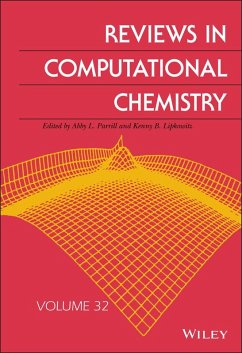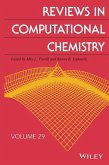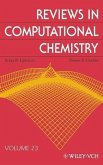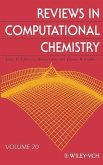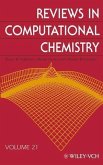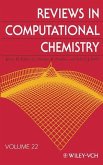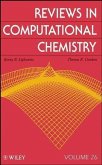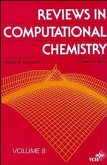REVIEWS IN COMPUTATIONAL CHEMISTRY THE LATEST VOLUME IN THE REVIEWS IN COMPUTATIONAL CHEMISTRY SERIES, THE INVALUABLE REFERENCE TO METHODS AND TECHNIQUES IN COMPUTATIONAL CHEMISTRY Reviews in Computational Chemistry reference texts assist researchers in selecting and applying new computational chemistry methods to their own research. Bringing together writings from leading experts in various fields of computational chemistry, Volume 32 covers topics including global structure optimization, time-dependent density functional tight binding calculations, non-equilibrium self-assembly, cluster prediction, and molecular simulations of microphase formers and deep eutectic solvents. In keeping with previous books in the series, Volume 32 uses a non-mathematical style and tutorial-based approach that provides students and researchers with easy access to computational methods outside their area of expertise. The chapters comprising Volume 32 are connected by two themes: methods that can be broadly applied to a variety of systems, and special considerations required when modeling specific system types. Each in-depth chapter contains background and theory, strategies for using the methods correctly, mini-tutorials and best practices, and critical literature reviews highlighting advanced applications. Essential reading for both newcomers and experts in the area of molecular modeling, this state-of-the-art resource: * Covers topics such as non-deterministic global optimization (NDGO) approaches and excited-state dynamics calculations * Contains a detailed overview of deep eutectic solvents (DESs) and simulation methods * Presents methodologies for investigating chemical systems that form microphases with periodic morphologies such as lamellae and cylinders * Features step-by-step tutorials on applying techniques to probe and understand the chemical dynamics exhibited in a system * Includes detailed subject indices on each volume in the series and up-to-date compendiums of molecular modeling software, services, programs, suppliers, and other useful information Reviews in Computational Chemistry, Volume 32 is a must-have guide for computational chemists, theoretical chemists, pharmaceutical chemists, biological chemists, chemical engineers, researchers in academia and industry, and graduate students involved in molecular modeling.
Dieser Download kann aus rechtlichen Gründen nur mit Rechnungsadresse in A, B, BG, CY, CZ, D, DK, EW, E, FIN, F, GR, HR, H, IRL, I, LT, L, LR, M, NL, PL, P, R, S, SLO, SK ausgeliefert werden.

